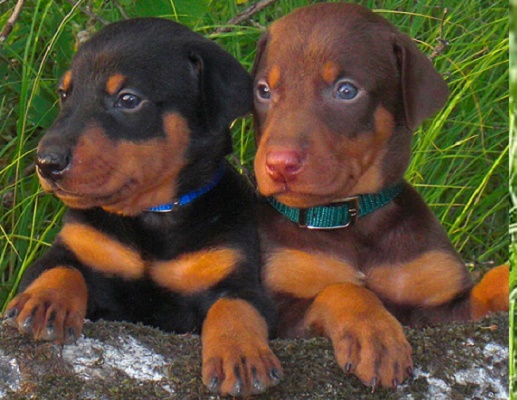Description
Welcome to our comprehensive guide on finding a Doberman Pinscher puppy for sale. In this article, we will delve into the history and characteristics of the Doberman Pinscher breed, provide expert advice on how to find a reputable breeder, discuss important considerations when purchasing a puppy, and offer insights into the training, socialization, and overall care of Doberman Pinscher puppies. Whether you are a first-time owner or a seasoned Doberman enthusiast, this guide aims to equip you with the knowledge and tools needed to make an informed decision when bringing home a new furry family member.
Introduction to the Doberman Pinscher Breed
If you’re in the market for a new furry friend, the Doberman Pinscher is a breed worth considering. Known for their loyalty and intelligence, these pups make great companions for those looking for a devoted sidekick.
History and Origin of the Doberman Pinscher
The Doberman Pinscher breed has a fascinating history. Developed in Germany by a man named Karl Friedrich Louis Dobermann in the late 19th century, these dogs were originally bred for protection and companionship. Their lineage includes a mix of breeds like the Rottweiler, Greyhound, and German Pinscher.
Physical Characteristics and Temperament
Doberman Pinschers are sleek and muscular dogs with a distinctive appearance. Their coat is short and smooth, typically coming in black, red, blue, or fawn colors. Known for their alertness and loyalty, these pups are often portrayed as fierce guard dogs, but they are also affectionate and playful with their families.
Finding a Reputable Breeder
When looking for a Doberman Pinscher puppy, finding a reputable breeder is crucial to ensure you are getting a healthy and well-socialized dog.
Researching Breeders in Your Area
Start your search by checking online reviews and reaching out to local Doberman clubs for recommendations. A reputable breeder will prioritize the health and well-being of their dogs, so take the time to research and ask questions before making a decision.
Visiting the Breeder’s Facility
Once you’ve narrowed down your list of potential breeders, schedule a visit to their facility. Take note of the cleanliness and overall condition of the premises, as well as the temperament of the dogs on site. A responsible breeder will be transparent and open to answering any questions you may have.
Characteristics and Traits of Doberman Pinscher Puppies
Bringing a Doberman Pinscher puppy into your home is an exciting adventure. Understanding their personality traits and growth expectations can help you prepare for life with your new furry family member.
Personality Traits to Expect
Doberman Pinscher puppies are known for their intelligence, loyalty, and playfulness. They thrive on human companionship and require consistent training and socialization to become well-rounded adult dogs. Expect a loving and protective companion who will quickly become a cherished member of your family.
Size and Growth Expectations
As a medium to large breed, Doberman Pinschers can reach heights of 24 to 28 inches at the shoulder and weigh between 60 to 100 pounds when fully grown. Their growth rate is relatively fast, so be prepared for a puppy who will quickly grow into a strong and athletic adult dog.
Health Considerations When Buying a Doberman Pinscher Puppy
Ensuring the health and well-being of your Doberman Pinscher puppy should be a top priority when making your purchase.
Common Health Issues in Doberman Pinschers
Like all breeds, Doberman Pinschers are prone to certain health issues such as hip dysplasia, von Willebrand’s disease, and dilated cardiomyopathy. Working with a reputable breeder who conducts health screenings on their breeding dogs can help reduce the risk of these genetic conditions being passed down to puppies.
Health Testing and Certifications
Before purchasing a Doberman Pinscher puppy, inquire about health testing and certifications obtained by the breeder. Tests for conditions like hip dysplasia, cardiac abnormalities, and genetic disorders can provide reassurance that your new furry friend is coming from a healthy bloodline.
Training and Socialization Needs
Doberman Pinscher puppies are smart cookies but also full of energy and mischief. To set them up for success, start with the basics. Use positive reinforcement, keep training sessions short and fun, and be consistent. Socialization is key – introduce your pup to different people, animals, and environments early on to help them become well-rounded adults
Puppy Training Basics
Teach your Doberman puppy basic commands like sit, stay, and come using treats and praise. Crate training can help with housebreaking and create a safe space for your pup. Remember, patience is key – Rome wasn’t built in a day, and your puppy won’t become an obedience champ overnight.
Socialization Tips for Doberman Pinscher Puppies
Expose your Doberman puppy to various sights, sounds, and experiences from a young age. Take them to puppy classes, dog parks, and on walks in different environments. Positive interactions during this critical period can help prevent behavior issues down the road.
Cost of Owning a Doberman Pinscher Puppy
Getting a Doberman Pinscher puppy can be a hefty investment upfront, but the love and joy they bring are priceless. Remember, being a pet parent comes with ongoing expenses beyond the initial purchase price.
Initial Purchase Price
The cost of a Doberman Pinscher puppy from a reputable breeder can range from $1,000 to $2,500 or more, depending on factors like lineage, health clearances, and location. Avoid deals that seem too good to be true – shady breeders are a red flag.
Ongoing Expenses to Consider
Factor in expenses like food, toys, grooming, vet visits, vaccinations, training classes, and pet insurance. Emergency vet bills can sneak up on you, so having a rainy-day fund for your furry friend is always a smart move.
Important Questions to Ask Before Purchasing
Before bringing home a Doberman Pinscher puppy, do your homework to ensure you’re getting a healthy and well-adjusted pup. Ask the breeder the tough questions to set your mind at ease.
Breeder’s Health Guarantee
A reputable breeder should provide health clearances for the puppy’s parents and offer a health guarantee for genetic conditions. Be wary of breeders who dodge questions about health concerns or offer vague assurances.
Puppy’s Parents Health and Temperament
Inquire about the health and temperament of the puppy’s parents to get an idea of what to expect in your new furry family member. A responsible breeder will have taken steps to breed for good health and sound temperament.
Final Thoughts on Bringing Home a Doberman Pinscher Puppy
Bringing home a Doberman Pinscher puppy is a big responsibility but also a rewarding adventure. With proper training, socialization, and care, your new furry companion can grow into a loyal and loving member of your family. Remember, they’re not just pets – they’re family.
As you embark on the journey of bringing home a Doberman Pinscher puppy, remember that responsible ownership is key to ensuring a happy and healthy life for your new companion. By investing time in training, socialization, and proper care, you can nurture a strong bond with your Doberman and enjoy the fulfilling experience of welcoming a loyal and loving canine companion into your home. We hope this guide has provided valuable insights to help you make the best decision for your family and your new four-legged friend. Here’s to many joyful moments ahead with your Doberman Pinscher puppy!




